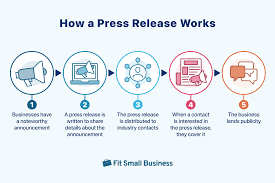Enhancing Your Online Presence with SEO Content Development Services
SEO Content Development Services: Enhancing Your Online Presence
In today’s digital age, having a strong online presence is crucial for businesses looking to reach their target audience effectively. Search Engine Optimization (SEO) plays a vital role in improving your website’s visibility and ranking on search engine results pages. One key aspect of SEO is content development.
SEO content development services focus on creating high-quality, relevant, and engaging content that not only attracts visitors to your website but also helps improve your search engine rankings. By incorporating targeted keywords and phrases into your content, you can increase your website’s visibility to potential customers searching for products or services related to your business.
Effective SEO content development involves understanding your target audience, conducting keyword research, and creating content that addresses their needs and interests. Whether it’s blog posts, articles, product descriptions, or multimedia content, the goal is to provide valuable information that resonates with your audience and encourages them to engage with your brand.
Furthermore, SEO content development services can help establish your business as an authority in your industry. By consistently producing high-quality content that educates, informs, and entertains your audience, you can build trust and credibility with both users and search engines.
It’s important to remember that SEO is an ongoing process that requires regular updates and optimization. By partnering with experienced SEO content development professionals, you can ensure that your website remains competitive in the ever-changing digital landscape.
Investing in SEO content development services is a strategic decision that can yield long-term benefits for your business. By improving your online visibility, attracting more organic traffic, and enhancing user engagement, you can ultimately drive conversions and achieve your business goals.
If you’re looking to enhance your online presence and improve your search engine rankings, consider investing in professional SEO content development services today.
Essential FAQs on SEO Content Development Services: A Guide to Boosting Your Website’s Performance
- What is SEO content development?
- Why is SEO content development important for my website?
- How can SEO content development improve my search engine rankings?
- What are the key components of effective SEO content development?
- How do I choose the right keywords for my SEO content?
- What types of content can benefit from SEO content development services?
- How long does it take to see results from SEO content development efforts?
- Can I handle SEO content development on my own or should I hire a professional?
What is SEO content development?
SEO content development is a strategic process that involves creating and optimizing content for websites to improve their visibility and ranking on search engine results pages. It focuses on producing high-quality, relevant, and engaging content that incorporates targeted keywords and phrases to attract organic traffic and enhance the user experience. By understanding the needs and interests of the target audience, conducting thorough keyword research, and implementing SEO best practices, SEO content development aims to increase a website’s online presence, establish authority in its industry, and drive conversions. It is a fundamental aspect of search engine optimization that plays a crucial role in helping businesses reach their target audience effectively in the competitive digital landscape.
Why is SEO content development important for my website?
SEO content development is crucial for your website because it plays a key role in enhancing your online visibility and attracting relevant traffic. By creating high-quality, keyword-optimised content, you can improve your website’s search engine rankings and increase the likelihood of being discovered by potential customers. Effective SEO content development helps you not only drive organic traffic to your site but also establish your brand as an authority in your industry. By providing valuable and engaging content that resonates with your target audience, you can boost user engagement, build trust, and ultimately drive conversions. In today’s competitive digital landscape, investing in SEO content development services is essential for staying ahead of the curve and achieving sustainable online success.
How can SEO content development improve my search engine rankings?
SEO content development can significantly enhance your search engine rankings by strategically incorporating relevant keywords and phrases into your website’s content. By creating high-quality, informative, and engaging content that resonates with your target audience, you can attract more organic traffic to your site. Search engines value fresh, original content that provides value to users, and by consistently producing such content, you can demonstrate your website’s authority and relevance in your industry. Additionally, SEO content development helps search engines better understand the context of your website, making it easier for them to index and rank your pages higher in search results. Ultimately, investing in SEO content development services can lead to improved visibility, increased website traffic, and ultimately higher search engine rankings for your business.
What are the key components of effective SEO content development?
When it comes to effective SEO content development, several key components play a crucial role in achieving success. Firstly, thorough keyword research is essential to identify relevant terms and phrases that your target audience is searching for. These keywords should be strategically incorporated into your content to improve search engine visibility. Secondly, high-quality and engaging content that provides value to users is paramount. Content should be well-written, informative, and tailored to address the needs and interests of your audience. Additionally, proper on-page optimization, including meta tags, headings, and internal linking, helps search engines understand the context of your content and improve its ranking. Regularly updating and refreshing content to keep it current and relevant also contributes to effective SEO content development strategies.
How do I choose the right keywords for my SEO content?
When it comes to choosing the right keywords for your SEO content, it’s essential to conduct thorough research and analysis to identify the most relevant and effective terms for your target audience. Start by understanding your business goals and target market, then brainstorm a list of potential keywords that align with your offerings. Utilize keyword research tools to assess search volume, competition level, and relevance of each keyword. Look for long-tail keywords that are specific to your niche and have lower competition but higher conversion potential. Consider user intent when selecting keywords to ensure they match what users are searching for. Regularly monitor and update your keyword strategy based on performance data to continuously improve the effectiveness of your SEO content.
What types of content can benefit from SEO content development services?
Various types of content can benefit significantly from SEO content development services. Blog posts, articles, product descriptions, service pages, landing pages, infographics, videos, and social media posts are just a few examples of content that can be optimised for search engines. By incorporating relevant keywords and providing valuable information that addresses users’ queries and interests, these types of content can attract organic traffic to your website and improve your search engine rankings. Additionally, by focusing on creating high-quality and engaging content across different formats, businesses can enhance their online visibility, establish authority in their industry, and drive user engagement and conversions.
How long does it take to see results from SEO content development efforts?
One frequently asked question regarding SEO content development services is, “How long does it take to see results from SEO content development efforts?” The timeline for seeing results from SEO content development can vary depending on various factors such as the competitiveness of your industry, the quality of the content produced, and the effectiveness of the SEO strategies implemented. Typically, it may take a few weeks to several months to start seeing noticeable improvements in your search engine rankings and organic traffic. Consistent effort, ongoing monitoring, and adjustments to your content and SEO tactics are essential for achieving sustainable results over time.
Can I handle SEO content development on my own or should I hire a professional?
When considering whether to handle SEO content development on your own or hire a professional, it’s essential to weigh the pros and cons. While it is possible to manage SEO content development independently, hiring a professional can offer numerous benefits. An experienced SEO content development specialist possesses the expertise, tools, and industry knowledge needed to create effective content that resonates with your target audience and improves your search engine rankings. By entrusting this task to a professional, you can save time, ensure high-quality output, and benefit from strategic insights that can significantly enhance your online presence and drive business growth.







